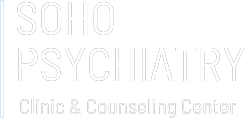OCD IS A DEBILATATING DISORDER THAT CAN CONSUME SOMEONES LIFE.
“I used to unplug every single appliance in my house. Or I’d double-check every door in my house to make sure it was locked at night. It was like a panic come over me and I had to do something, and once I did it, I was ok.” ~ Jessica Alba
Obsessive Compulsive Disorder is a common mental health condition and anxiety disorder where a person has obsessive thoughts and compulsive behaviors. The repetitive behaviors caused by OCD can significantly interfere with a person’s daily activities and social interactions.
Even if the person experiencing OCD knows their obsessions are not realistic, they have difficulty disengaging from the obsessive thought or stopping the compulsive actions.
How to treat ocd
Like many illnesses, individuals respond to varying treatments. For OCD, it is common to use a combination of medication and therapy. A type of Cognitive Behavioral Therapy called Exposure and Response Prevention (ERP) has proven very helpful in the treatment of OCD. ERP therapy relies on the principle of habituation and involves exposing the patient to the feared situation in a controlled manner, gradually increasing the degree of exposure. In utilizing ERP, it is important to work with an experienced professional whom you trust, and understanding that you may feel a little discomfort as you approach your fears.
Medications for OCD
Medications are commonly used for ongoing management of the condition or can be used to curb the symptoms in the beginning of the therapy process.
Benefits of ocd treatment
Learn not to rely on compulsions
Stop being side-tracked by perfectionism
Look challenges in a positive light
Better sleep
Pain relief
Improve work quality
OCD can look different between individuals. For instance some people with depression gain weight, while others lose a significant amount of weight; some people suffer from insomnia (not being able to sleep), while others are unable to wake up and get out of bed. In determining if an individual is suffering with depression we look for changes in their normal activities.

HOLISTIC HEALTH
The mind and body are intimately connected. How we think and feel affects our bodies, and how we care for our bodies affects our mind. When we say holistic care we are focusing on the whole person not just the mental health diagnosis. We will work with you to improve your sleep, nutrition, fitness, lifestyle and wellness. We do work with and recommend certain supplements and approaches that have research studies to prove effectiveness. However, we do always advise patients we can not recommend anything that has no fda regulations.
APPOINTMENTS
Get started and book a consultation with one of our providers today.
Monday – Friday 09.00am – 06.00pm
